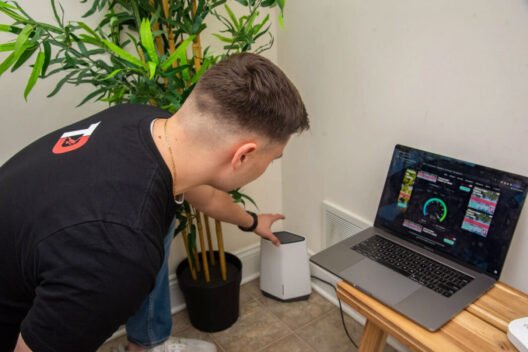When a child is injured due to another person’s negligence, the emotional and legal challenges can be overwhelming for families. Unlike adult injury claims, cases involving minors require additional care, oversight, and legal procedures to ensure the child’s rights are fully protected. Courts treat these claims differently because minors cannot legally represent themselves or make binding financial decisions. Parents or guardians must act in the child’s best interest, balancing emotional recovery with the pursuit of fair compensation. The process often involves careful coordination between medical providers, insurers, and legal representatives. Understanding the unique aspects of these cases helps families make informed decisions and safeguard their child’s future well-being as they navigate the complexities of the legal system.
Understanding Legal Protections for Injured Minors
Personal injury laws recognize that children are vulnerable and may not fully understand risk or responsibility. As a result, the legal system provides additional protections when minors are harmed in accidents. Whether the injury results from a car crash, playground incident, or medical negligence, the rules governing compensation differ from those for adults. Minors cannot directly enter into contracts or accept settlements, meaning parents or guardians must act on their behalf. Courts often review proposed settlements to ensure they serve the child’s long-term interests rather than immediate financial relief for the family. This judicial oversight ensures that funds intended for medical care, rehabilitation, or future education remain protected. In many cases, settlements for minors are held in structured accounts or trusts until the child reaches adulthood. These legal safeguards help guarantee that the compensation genuinely benefits the young victim over time, reflecting the justice system’s responsibility to protect their future stability.
The Role of Guardians and Legal Representation
Guardians play a vital role in ensuring that a child’s rights are upheld throughout the legal process. They are responsible for deciding whether to pursue claims, approving settlements, and communicating with insurers or attorneys. Because minors lack legal capacity, the guardian acts as their advocate, ensuring all actions taken align with the child’s best interests. Having legal representation also becomes essential, as these cases often involve additional documentation and court approval. Working with an experienced attorney can help families navigate complex procedures and negotiations effectively. For example, an accident and injury law firm in Burbank can assist parents by gathering evidence, consulting with medical professionals, and preparing court filings to protect the child’s legal and financial interests. Attorneys also help prevent potential exploitation from insurance companies seeking to minimize payouts. Guardians and lawyers together form a support system that ensures the process remains transparent, ethical, and entirely focused on the child’s welfare.
Gathering Medical and Evidence Documentation
Comprehensive medical documentation forms the foundation of a strong personal injury claim involving a minor. It’s essential to record all medical evaluations, treatments, prescriptions, and long-term care recommendations. Children’s injuries may take longer to diagnose or heal fully, and some effects might not be immediately visible. Keeping detailed records helps demonstrate how the injury impacts both the child’s current quality of life and future development. Evidence collection should also include photographs of the scene, witness statements, and any law enforcement or school reports. Medical professionals can provide written assessments that explain the nature of the injury, the treatment plan, and potential long-term complications. These details help quantify both economic and non-economic damages, such as pain and suffering. Parents and guardians should maintain organized files from the start, as precise documentation strengthens credibility during negotiations or court hearings. Clear and consistent evidence ensures that compensation accurately reflects the full extent of the child’s harm.
Calculating Damages and Long-Term Impact
Determining compensation in personal injury cases involving minors requires careful consideration of both immediate and future needs. Beyond medical bills, damages may include rehabilitation, therapy, educational disruptions, and emotional distress. Children may face developmental delays, physical limitations, or psychological trauma that can influence their lives for years to come. Calculating these costs accurately requires collaboration between legal and medical professionals. Economists or life-care planners may also be consulted to estimate future expenses related to ongoing treatment or loss of potential income. Courts tend to favor structured settlements for minors, which distribute payments over time to ensure lasting financial security. This structure prevents misuse of funds and aligns compensation with the child’s future milestones, such as education or independent living. By focusing on both short-term recovery and long-term care, the process ensures justice is not only served today but continues to protect the child’s well-being well into adulthood.
Court Approval and Structured Settlements
Settlements involving minors typically require court approval to validate their fairness. Judges review the terms to confirm that the agreed amount is reasonable and adequate given the severity of the injury and projected needs. This step prevents guardians or insurers from finalizing agreements that might disadvantage the child. Courts often direct that settlement funds be deposited into a restricted account or trust, which is inaccessible until the minor turns 18 or reaches a designated age. In some cases, annuities are created to provide scheduled payments over time, ensuring financial support for education or medical costs. Structured settlements also protect funds from premature spending. This oversight is one of the defining features of cases involving minors, emphasizing long-term protection over immediate payout. By involving the court, the system maintains accountability and transparency, guaranteeing that the child’s interests remain the priority. Parents and attorneys must comply with all procedural requirements to secure approval efficiently and avoid delays.
Emotional and Psychological Considerations
Beyond financial and legal concerns, personal injury cases involving minors carry deep emotional weight. The trauma of an accident can leave lasting psychological effects on a child, including fear, anxiety, or behavioral changes. Addressing these issues requires compassion and professional support from therapists or counselors. Parents must balance their legal responsibilities with the child’s emotional recovery, ensuring that the process doesn’t add unnecessary stress. Maintaining open communication and reassuring the child of their safety can help restore confidence. Legal proceedings can sometimes feel intimidating, especially if the child is required to provide testimony or undergo evaluations. Creating a supportive environment minimizes distress and promotes healing. The goal should always extend beyond financial compensation—it should encompass overall well-being and stability. A holistic approach that includes mental health care reinforces the idea that justice involves more than winning a claim; it’s about helping the child rebuild trust, comfort, and normalcy after a traumatic experience.
Statute of Limitations and Timing of Claims
In most jurisdictions, the statute of limitations for personal injury claims is extended for minors until they reach adulthood. This extension ensures that children are not unfairly denied justice because their guardians failed to act promptly. However, waiting too long to initiate a claim can still create challenges, especially when evidence becomes harder to locate or witnesses move away. Acting early allows attorneys to gather comprehensive documentation and witness testimony while memories are still fresh. Even though legal deadlines may seem distant, beginning the process promptly provides greater leverage in negotiations and ensures medical and financial needs are addressed. Once the child turns eighteen, they may have a limited period to pursue additional claims independently, depending on state laws. Understanding these time constraints and acting proactively ensures that the child’s rights remain protected from both legal and procedural obstacles that could jeopardize their rightful compensation.
Protecting the Future of Injured Minors
Handling personal injury cases involving minors requires sensitivity, diligence, and a commitment to long-term welfare. From documentation and negotiation to court approval and emotional support, every step must prioritize the child’s safety and future stability. Legal safeguards exist to ensure fairness, but parents and guardians play a vital role in guiding the process responsibly. By acting promptly, maintaining organized records, and seeking trustworthy representation, families can secure justice that truly serves their child’s interests. Beyond financial compensation, the ultimate goal is healing—physical, emotional, and economic—so that the child can move forward with confidence and security. The legal process, though complex, offers the opportunity to transform hardship into hope, ensuring that young victims receive the care and protection they need to rebuild and thrive.








